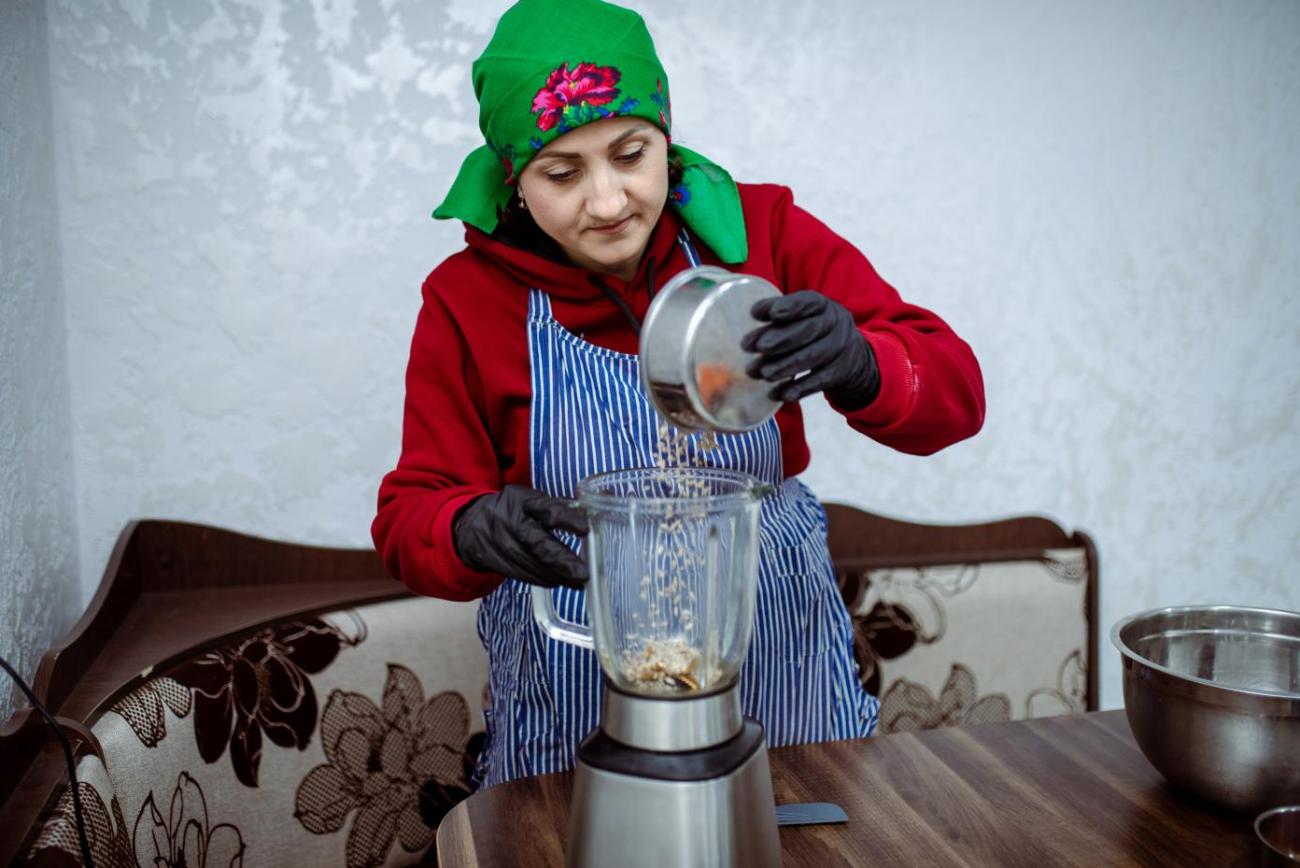Ala Cernioglo from Comrat, 35 years, has transformed her passion for artisanal halva into an environmentally friendly and healthy business. She embraced this area though she is a journalist by profession.
She has always been attracted to what is tasty and healthy. Her business idea took root right at the beginning of the pandemic, two years ago. Spending time at home with her husband and two children, Ala remembered how she used to cook home-made halva together with her grandmother and then said to herself: “Why not produce healthy, sugar-free halva for my children?” She tried several recipes until she found the best one: with honey and sunflower seeds. Children, relatives, friends were delighted with the authentic taste of the halva.
Ala’s sister was the one who encouraged her to start up a business and the idea took shape after her friends convinced her to apply to a grants competition organised by “Sustainable and resilient communities through women empowerment” UNDP project, funded by Sweden.
“I have never won anything, and also have never participated in any competition, so this time I decided to test my luck,” says Ala. The US$4,300 grant was used to purchase and install photovoltaic panels, which helped to reduce the production costs. Her calculations looked good not only on paper, but also in reality: thanks to these panels with a capacity of 6 KW, she would be able to reduce electricity costs by over MDL34,000 annually and, at the same time, significantly cut carbon emissions. Besides, use of solar panels helped shield the business from the energy crisis that affected the Republic of Moldova.
Ala has also bought equipment to make sugar-free peanut paste and candies, which broadened her offer of healthy sweets on the market. “This grant validated my business idea and gave me confidence to embark in this totally new area for me,” says the young entrepreneur.
In addition to the Swedish grant obtained as part of the UNDP project, Ala benefits from mentoring of the project’s experts, who consulted her on business development and resilience, market expansion, recovery of production waste, as well as in the process of identifying and purchasing equipment.
The halva produced by Ala is now highly demanded not only in Comrat, but also in Chișinău. She is convinced that any woman could follow her example by just not being afraid and believing in herself. “A woman can move mountains,” says Ala.







